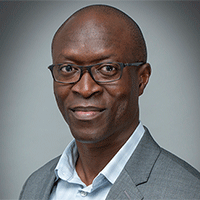
Conrad Tucker, Ph.D.
Director, Carnegie Mellon University – Africa
Associate Dean for International Programs – Africa
CMU
Keynote Title: The Current and Future of Artificial Intelligence/Machine Intelligence in Mechanical Engineering
Abstract: The field of Mechanical Engineering has educated students and advanced research in the design of physical systems that solve real world problems. As the world becomes more digital in nature and AI/ML models leverage such data to discover novel insights, the question is "what will be the role of Mechanical Engineering in the age of AI/ML?" Recent advancements in AI/ML have resulted in these models achieving comparable performance in domains that were once considered the expertise of human engineers in Mechanical fields, ranging from Deep Reinforcement Learning control systems to Generative AI for 3D designs and physics-based simulations. How will or should the field of Mechanical Engineering adapt to remain relevant in the 21st century age of digitization and AI/ML?
Biography: Dr. Conrad Tucker is the Director of Carnegie Mellon University-Africa (CMU-Africa) and the Associate Dean for International Programs-Africa. He is a professor of Mechanical Engineering at Carnegie Mellon University and holds courtesy appointments in Machine Learning, Robotics, Biomedical Engineering, and CyLab Security and Privacy. His research focuses on employing Machine Learning (ML)/Artificial Intelligence (AI) techniques to enhance the novelty (i.e., generative designs) and efficiency (i.e., functional evaluations) of engineered systems. His research also explores the challenges of bias and exploitability of AI systems and the potential impacts on people and society.
Dr. Tucker has served as PI/Co-PI on federally/non-federally funded grants from the National Science Foundation, the Air Force Office of Scientific Research, the Defense Advanced Research Projects Agency, the Army Research Laboratory, the Bill and Melinda Gates Foundation, among others. In February 2016, he was invited by National Academy of Engineering (NAE) President Dr. Dan Mote, to serve as a member of the Advisory Committee for the NAE Frontiers of Engineering Education Symposium. He recently served as a Commissioner on the U.S. Chamber of Commerce Artificial Intelligence Commission on Competitiveness, Inclusion, and Innovation and currently serves as a member of the Organisation for Economic Co-operation and Development (OECD) Expert Group on AI risk and accountability ONE AI. Dr. Tucker received his Ph.D., M.S. (Industrial Engineering), and MBA degrees from the University of Illinois at Urbana-Champaign, and his B.S. in Mechanical Engineering from Rose-Hulman Institute of Technology.
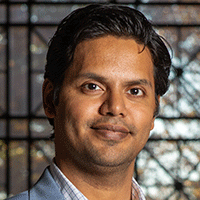
Faez Ahmed, Ph.D.
ABS Career Development Assistant Professor
Massachusetts Institute of Technology (MIT)
Biography: Prof. Faez Ahmed is the ABS Career Development Assistant Professor in the Department of Mechanical Engineering at the Massachusetts Institute of Technology (MIT). He leads the Design Computation and Digital Engineering (DeCoDE) lab, with a research focus on the synergy of machine learning and engineering design. His recent work addresses the synthesis of designs tailored to real-world constraints and promotes the collaborative potential between human designers and machines. Prior to his appointment at MIT, Prof. Ahmed was a postdoctoral fellow at Northwestern University and earned his Ph.D. in Mechanical Engineering from the University of Maryland. He has industrial experience in Australia's railway and mining sectors, where he championed data-driven predictive maintenance initiatives. Prof. Ahmed's vision is to create a world where humans and AI design together to solve our biggest challenges.
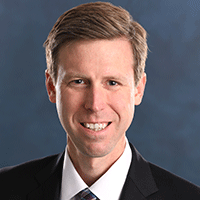
Kristofor Anderson
Director of Energy Resources
Georgia Environmental Finance Authority
Biography: Kristofor Anderson is the Director of Energy Resources with the Georgia Environmental Finance Authority (GEFA), which is the state’s energy office. Kris leads the state energy office programs, including the Weatherization Assistance Program, the State Energy Program, the Fuel Storage Tank Program and multiple programs newly created by the Bipartisan Infrastructure Law and the Inflation Reduction Act. Kris joined GEFA as a program manager in 2010 and prior to that was a planning consultant and worked on a range of planning and management programs for federal and energy industry clients. At GEFA, Kris has managed millions of dollars of federal grants for energy efficiency, renewable energy, and energy resiliency.
Kris has a Master of City and Regional Planning degree from Georgia Tech and a Bachelor of Science in geography from the University of Wisconsin – Madison.
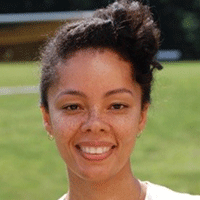
Ty Booker
Senior Manager, Programming and Engagement
ASME
Biography: Ty Booker is the Sr. Manager of Programming and Engagement and a member of the Section Operations team for ASME in New York City. Ty serves as the lead for program development and engagement for professional and student sections.
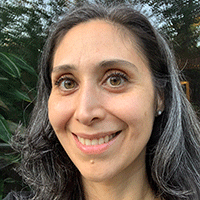
Isabel Cardenas-Navia, Ph.D.
Senior Director of Research
WorkCred
Biography: Dr. Cardenas-Navia serves as Workcred’s senior director of research. In that role she advances Workcred’s research agenda and examines workforce credentialing issues and needs. Previously, Dr. Cardenas-Navia was the vice president of programs with the Business-Higher Education Forum (BHEF). Through her career, she led and facilitated projects bringing together Fortune 500 employers and higher education institutions and successfully applied for funding from the National Science Foundation, the Office of Naval Research, the Alfred P. Sloan Foundation and J.P. Morgan Chase Foundation. Prior to BHEF, Dr. Cardenas-Navia was the president and founder of Alta Vision Consulting, where she provided short-term, project-based consulting in policy and workforce development in scientific and technical fields. She has a Ph.D. in Biomedical Engineering and certificate in Biomolecular and Tissue Engineering from Duke University, and a B.S. in Mechanical Engineering from Yale University.
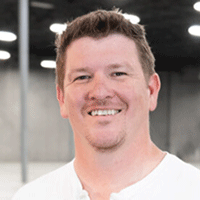
Glen Case
Founder, Chief Technologist
Hermeus
Biography: Mr. Case serves as Founder and Chief Technologist of Hermeus Corporation, a venture-backed high-speed aviation company which strives to connect the world with hypersonic aircraft. Prior to Hermeus, Mr. Case served as the Director of Propulsion and Structures at Generation Orbit. There he led the efforts to develop one of the nation’s newest X-Planes, the X-60A. Mr. Case also spent his formative years at Blue Origin, primarily as a rocket engine design and development engineer within the BE-3 and BE-4 engine programs. He also spent several years at Stennis Space Center, where he worked the waning years of the Space Shuttle Main Engine Program and the J-2X engine test program. Mr. Case holds a Bachelor of Science Degree in Mechanical Engineering from Tulane University and a Master of Science Degree in Aeronautical and Astronautical Engineering from Purdue University.
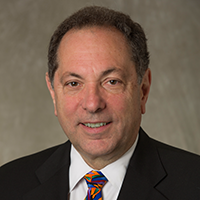
Thomas Costabile, P.E.
Executive Director/CEO
ASME
Biography: Tom Costabile stands at the forefront of innovation and today's industry developments. He has built a reputation for developing successful business strategies, incubating new business models, and building out channel programs, and has worked tirelessly to establish ASME as a global leader in the mechanical engineering space while promoting the technical and societal contributions of engineers.
He is responsible for guiding ASME's organizational programs in code and standards development, membership, conferences, technical publishing, education, professional development, and public policy.
While embracing ASME's core values, Costabile led a merger between ASME and Techstreet in order to strengthen ASME's revenue and create a unique value for the global standards community. Also under his leadership, ASME joined with Black and Veatch to launch a new joint venture, Twinify Technologies LLC, to provide digital twin solutions serving clients in asset intensive industries.
Costabile is a licensed professional mechanical engineer and began his career in the nuclear power industry before serving as senior vice president of operations for SONY Music where he led the development of the company's compact disc and distribution operations. He holds a bachelor's degree in mechanical engineering and a Master of Business Administration degree with a focus on Finance.
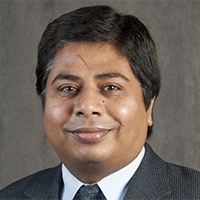
Prashanta Dutta, Ph.D., FASME
Director of NSF NRT-LEAD Program,
Mechanical and Materials Engineering
Washington State University
Biography: Dr. Prashanta Dutta is a tenured full Professor in the School of Mechanical and Materials Engineering of Washington State University (WSU) and the Director of the NSF-sponsored NRT-LEAD Program. Previously, he led the WSU GAANN Fellow Program in the national priority area of Advanced Manufacturing. After receiving his Ph.D. in Mechanical Engineering from Texas A&M University, he joined WSU in 2001 as a tenure track Assistant Professor and was promoted to the rank of Associate and Full Professor in 2007 and 2013, respectively. From 2017 to 2022, he served as an Associate Director and the Graduate Program Chair for the School of Mechanical and Materials Engineering. During his sabbatical years, he worked as a Visiting Professor at Konkuk University, Seoul, South Korea and Technical University of Darmstadt, Germany. His primary research area is Micro/Nano/Biofluidics with a specific focus on developing new algorithms for multiscale and multiphysics problems. On the educational research front, he and his team have developed a suite of low-cost desktop learning modules for fluid mechanics and heat transfer courses. He has published more than 250 peer-reviewed journal and conference articles. In addition to teaching graduate and undergraduate-level Mechanical Engineering courses, he mentored the research work of 17 Ph.D. students and served as the chair for more than 40 MS students. Prof. Dutta is an elected Fellow of ASME and a recipient of the prestigious Fulbright Professorship sponsored by the US Department of State.
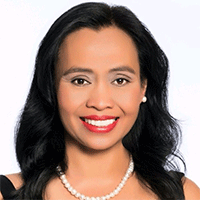
Doris Espiritu, Ph.D.
Dean of the Center of Excellence for Engineering
and Computer Science
Wilbur Wright College
Biography: Doris Espiritu, Ph.D., is the Senior Advisor to the Provost at City Colleges of Chicago, Dean of the Center of Excellence for Engineering and Computer Science, and Professor of Chemistry at Wilbur Wright College. Doris Espiritu was recently recognized by Crain's Chicago Top Women in STEM. She is one of the first National Science Foundation’s research awardees under the Hispanic Serving Institutions (HSI) Program, a co-PI of NSF CAFECS, and the Department of Energy's Industrial Building Assessment Projects and Wright College PI of SLOAN Foundation Grant, Enduring Pathways which prepares community college students for graduate programs. She founded Engineering at Wright (EPW), a program recognized as the 2023 Examples of Excelencia by Excelencia in Education. She had grown the Engineering program at Wright's (EPW) enrollment by 2400% within five years. Doris also founded seven chapters of national organizations, including the American Society of Mechanical Engineers, Wright Chapter (ASME-Wright). Doris promotes collaboration between K-12 schools, other community colleges, 4-year institutions, non-profit organizations, and industries. Doris' current research is to design and implement practices that develop Community of Practice (CoP), Professional Identity, and Self-Efficacy to increase diversity in Engineering and Computer Science and to streamline transfer from community colleges to 4-year institutions. Through her research, she authored the Contextualized Bridge that eliminated up to two years of remedial math and placed students directly into Calculus 1. She also developed the Holistic and Programmatic Approach for Transfer (HPAT) model that transfers 89% within two years as juniors to the 4- year transfer institutions that allow underprepared students to complete engineering degrees in four years.
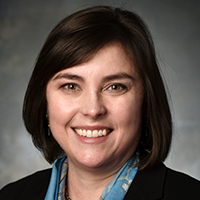
Mary Frecker, Ph.D.
Riess Chair in Engineering
Director, Center for Biodevices
Pennsylvania State University
Biography: Mary Frecker is the Head of the Department of Mechanical Engineering, a Professor of Mechanical Engineering and Biomedical Engineering, the Leighton Riess Chair in Engineering, and the founding director of the Center for Biodevices at Pennsylvania State University. She has served as Associate Department Head for Graduate Programs in Mechanical & Nuclear Engineering, as well as Director of the Bernard Gordon Learning Factory in the College of Engineering. Dr. Frecker has a B.S. from the University of Dayton, and an M.S. and Ph.D. in Mechanical Engineering from the University of Michigan. Dr. Frecker has been awarded the Pearce Endowed Development Professorship in Mechanical Engineering at Penn State, the GM/Freudenstein Young Investigator Award by the American Society of Mechanical Engineers (ASME) Mechanisms Committee (2002), the Outstanding Advising Award by the Penn State Engineering Society (2002), the Outstanding Research Award by the Penn State Engineering Society (2005), three ASME Best Paper awards (2009 and 2015), the ASME Adaptive Structures and Material Systems Award (2021), and the ASME McDonald Mentoring Award (2023). She served as an Executive Leadership in Academic Technology & Engineering (ELATE) Fellow in 2018-2019, and completed the Changing the Future for Senior Women Faculty in STEM leadership program in 2019. Dr. Frecker is a Fellow of the ASME, is currently an Executive Committee member of the ASME Design Engineering Division, past Chair of the ASME Mechanisms & Robotics Technical Committee, and has served as Associate Editor of the ASME Journal of Mechanical Design, Chair of the ASME Adaptive Structures and Material Systems Technical Committee, and Executive Committee member of the ASME Aerospace Division.
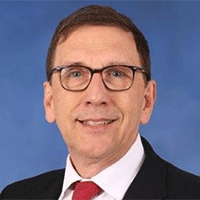
Bob Frederick, Ph. D.
Propulsion Research Center Director,
Professor, Mae,
The University of Alabama (Huntsville)
Biography: Dr. Frederick is a Professor of Mechanical and Aerospace Engineering and the Director of the Propulsion Research Center at the University of Alabama in Huntsville. As a leader, Dr. Frederick directs the UAH Propulsion Research Center. The PRC currently involves over 100 researchers, students, and staff working together on research programs focused on Propulsion and Energy. Over the past 32 years, the PRC team supported the education of over 300 students who have completed advanced degrees while performing research. As a Principal Investigator, he has directed over 15.0 million dollars of research in solid, liquid, and hybrid propellants and torpedo combustors, supervising over 100 advanced degree students. His current research programs investigate controllable boost propulsion for hypersonic systems, centrifugal nuclear propulsion, supercritical injection, high-temperature seals, and ramjet propulsion.
As a teacher, Dr. Frederick received the UAH Foundation Award for Distinguished Teaching, He developed and taught the current Rocket Propulsion I course at UAH, the first undergraduate propulsion laboratory, the first Advanced Solid Rocket Propulsion course, and the current Rocket Propulsion II course.
Dr. Frederick is an AIAA Associate Fellow and American Society of Engineering Educators member. In 2017, the AIAA Solid Rocket TC presented him with the “Shaping the Future of Aerospace” award for "organizing the Propulsion Education Technical Sessions at the AIAA Joint Propulsion Conference for the past twenty years."
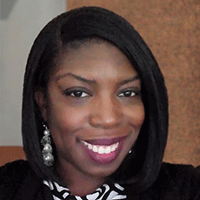
Geraldine Gooding, D.Eng.
Director, Engineering Education and Outreach
ASME
Biography: Geraldine Gooding, D.Eng. is an engineer, educator, entrepreneur, and change agent whose career spans over 15 years in the urban planning, engineering, and education fields. Dr. Gooding currently serves as Director of the Engineering Education & Outreach Department at the American Society of Mechanical Engineers (ASME), where she oversees projects and initiatives impacting the global K-12 and college/university communities through innovative classroom and curriculum support, professional development, scholarships, workforce development, and academic program accreditation (ABET). Dr. Gooding also seeks opportunities to lead initiatives at the intersection of diversity, equity, and inclusion (DEI) and engineering to improve formal and informal education for all. Outside of work, she enjoys mentoring and empowering youth from elementary to high school to reach their highest potential and teaches after-school enrichment classes in engineering.
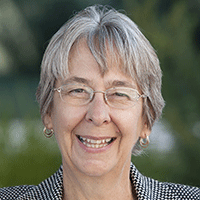
Christine Hailey, Ph.D.
Professor, Ingram School of Engineering
Texas State University
Biography: Christine Hailey holds a doctoral degree in Mechanical Engineering from the University of Oklahoma. Upon graduation, she joined Sandia National Laboratories as a Senior Member of the Technical Staff in the Aerodynamics Department. While at Sandia, she was named Manager of the Parachute Technology and Unsteady Aerodynamics Department, a position she held until joining the engineering faculty at Utah State University. In 2001, she was appointed as department chair of the Mechanical Engineering program at the University of Texas at Tyler and provided leadership in the development and accreditation of the program. Dr. Hailey returned to Utah State University in 2003 and served as Senior Associate Dean in the College of Engineering and Professor of Mechanical and Aerospace Engineering. She was named Dean of the College of Engineering in 2013 and received the 2016 Utah Governor’s Medal for Science and Technology. She joined Texas State University as Dean of the College of Science and Engineering in 2016 where she served for seven years. With her guidance, two new engineering programs were developed, one in civil engineering and one in mechanical engineering, as well as proposals for five new doctoral degrees. She returned to her faculty role as professor in fall 2023.
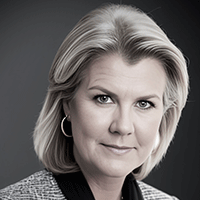
Stephanie Harrington
Director Constituent Relations
ABET
Biography: Stephanie has spent over 25 years in STEM education as an expert in academic and professional society environments. With a background as a structural engineer, she brings professional practice expertise to her roles in advancing education. In addition to working with STEM education programs at professional organizations, she been on faculty at the Catholic University of America and is currently an adjunct at Northern Virginia Community College. Stephanie most recently served as the Director of Marketing and Development at the American Society for Engineering Education. She is currently the Director of Constituent Relations at ABET. Stephanie received her bachelor’s degree in Civil Engineering from the University of Virginia and her master’s degree in Civil Engineering from the University of Texas at Arlington.
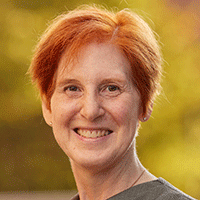
Caroline Hayes, Ph.D.
John and Nancy Hayes Department Chair in Mechanical Engineering
Iowa State University
Biography: Caroline Hayes is the John and Nancy Hayes Department Chair in Mechanical Engineering at Iowa State University and has led the department since 2012. During Dr. Hayes’ tenure, the department has seen significant growth both in terms of faculty, funding diversity, student enrollment and research expenditures and has initiated and sustained multiple efforts to recruit and retain students, including diverse students. She has also led major building, classroom and laboratory improvement projects in the Black Engineering Building and Hoover Hall.
Dr. Hayes holds a B.S. in computer science, a M.S. in knowledge-based systems, and a Ph.D. in robotics, all from Carnegie Mellon University. Her research interests include examining how to design effective systems of people and technology by combining elements of engineering, computer science, psychology and management science.
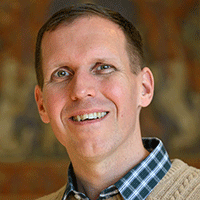
James Huff, Ph.D.
Associate Professor of Engineering Education
Harding University
Biography: Dr. James Huff is an Associate Professor of Engineering Education and an Honors College Senior Faculty Fellow at Harding University. He earned his Ph.D. in engineering education research from Purdue University, his M.S. in electrical and computer engineering from Purdue, and his B.S. in computer engineering from Harding. Dr. Huff is a qualitative researcher whose work lies at the nexus of engineering education research and applied personality and social psychology. An NSF CAREER Awardee, he is committed to fostering care as a central mindset of engineering and other professions through his in-depth examinations of personal lived experiences of identity and emotion, facets often hidden within professional domains. As Principal Investigator of the Beyond Professional Identity lab, Dr. Huff has mentored undergraduates, doctoral students, and professionals from fifteen disciplines in conducting their qualitative investigations on psychological phenomena relevant to equity and well-being in workplaces and degree programs.
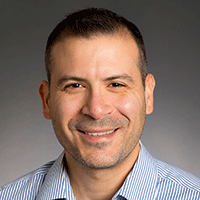
Levent Burak Kara, Ph.D.
Professor in the Department of Mechanical Engineering
Carnegie Mellon University
Biography: L. Burak Kara is a Professor in the Department of Mechanical Engineering at Carnegie Mellon University, with a courtesy appointment in the Robotics Institute. He is the founder of Visual Design and Engineering Laboratory. His current research interests include computer-aided design and manufacturing, design automation, data-driven design and shape optimization and machine learning, with applications in industrial product design, automotive design, engineering education and bio-medical engineering. He is the recipient of National Science Foundation Career award and American Society of Mechanical Engineers Design Automation Society Young Investigator Award. At CMU, he teaches courses in AI and Machine learning, Engineering Design, and Linear Algebra and Vector Calculus.
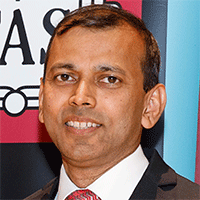
Manish Kumar
Global Head of Strategy, Business Development and Sales
Siemens Energy
Biography: Manish Kumar is the Global Head of Strategy, Business Development and Sales, for the Additive Manufacturing business at Siemens Energy. He is also an adjunct faculty in our department and teaches courses on decarbonization and sustainability. Manish is alumnus of IIT Kharagpur, India and Harvard Business School, Boston. He lives with his family is Charlotte, North Carolina. Manish has a passion for engineering, teaching, he enjoys playing badminton and cooking in his spare time.
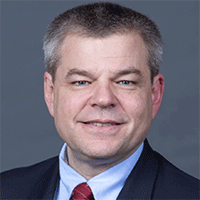
Thomas Kurfess, Ph.D., P.E.
President 2023-2024
ASME
Biography: Thomas R. Kurfess, Ph.D., P.E., is the 142nd president of the American Society of Mechanical Engineers (ASME) and is serving the 2023-2024 term of office. Kurfess is a Fellow of ASME and has been an active member of the Society for more than 30 years.
Dr. Kurfess is the HUSCO/Ramirez Distinguished Chair in Fluid Power and Motion Control and professor in mechanical engineering at the Georgia Institute of Technology and is the executive director of the Georgia Tech Manufacturing Institute. He also held the position of past assistant director for advanced manufacturing at the U.S. Office of Science and Technology Policy.
He is an elected member of the National Academy of Engineering and is also a Fellow of the American Association of the Advancement of Science, and the Society of Manufacturing Engineers.
Kurfess has held a variety of volunteer and leadership positions, including member at large for the ASME Council on Standards and Certification and the ASME Committee on Government Relations. He chaired the ASME Manufacturing Public Policy Task Force and served a term on the ASME Board of Governors.
Tom Kurfess earned his bachelor's, master's, and doctoral degrees in mechanical engineering, and a master's degree in electrical engineering and computer science from the Massachusetts Institute of Technology.

Darwin Newton, MBA, P.E.
Head of Operations, Electrical & eMobility Services
Siemens
Biography: Darwin Newton is a seasoned leader with a remarkable track record of over 25 years of experience in technology, engineering, and project management. He has successfully led teams across multiple markets and countries and has a proven history of starting and growing tech businesses in critical environments. As the Head of Operations for e-Mobility and Electrical Services at Siemens, Newton is responsible for leading teams of energy professionals in executing electrification solutions across key vertical markets such as data centers, healthcare, commercial, and federal sectors.
A licensed professional engineer Newton holds an MBA from Georgia State University and a Bachelor of Science degree in Electrical and Computer Engineering from Georgia Institute of Technology. He is passionate about growing top talent through a committed focus on STEM education for our youth. As a proud native Crucian, he frequently visits his home in the beautiful Virgin Islands. In his free time, he enjoys reading, boating, practicing Japanese martial arts, and spending time with his wife Julie and their four children, Darian, Daniel, Dvonte, and Daya.
With his vast knowledge and expertise, Newton is committed to providing Alternative Energy, Grid Edge, and sustainable Green solutions that improve the lives of people across the nation and accelerate our progress on the NetZero Roadmap. His dedication to growing top talent and passion for STEM education is a testament to his commitment to positively impacting future generations.
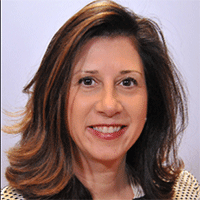
Debra Pothier
Senior Manager and Strategist
Autodesk
Biography: Debra Pothier, a senior manager, and strategist at Autodesk specializing in Architecture, Engineering, Construction (AEC), and Design and Manufacturing, has a career spanning over 30 years in the high-tech industry. With a dedicated tenure of over two decades at Autodesk, she has played a pivotal role in the AEC division, where her contributions have been instrumental in shaping the global education Building Information Modeling (BIM) strategy for the building sector. Debra's expertise extends to various roles within both the academic and commercial market, demonstrating her versatility and comprehensive understanding of the AEC industry. She holds a Master of Business Administration (MBA) and a Bachelor of Science, and a construction contractor’s Massachusetts license, showcasing a unique blend of academic, and hands-on experience. Debra co-authored the thought-provoking "Future of Industrialized Construction" paper, providing valuable insights into the evolving landscape of construction methodologies. Recently, she co-authored the ASME & Autodesk's collaborative research paper on the "Future of Manufacturing," exploring new workflows, roles, and skills essential for achieving Industry 4.0 business outcomes. Debra has a passion for innovation and is committed to advancing the AEC and Design and Manufacturing industries utilizing technology.

Barry Powell
Head, Siemens Electrical Products Business
Biography: In his role as regional CEO, Barry has transformed Siemens Electrical Products to the "best-in-class" provider of electrical infrastructure solutions for customers ranging from Microsoft to Tesla to Intel and iconic sites such as the Freedom Tower in NYC. He leads a progressive $4B organization, which is leading the overall company in data analytics, digitalization, and supply chain optimization. He is the founder of the Siemens Manufacturing Council in the US and led his business to winning the "Werner von Siemens Award" as best overall Siemens business in 2020 & 2023. Barry is a recognized leader in the electrical industry in the US, currently serving as the Treasurer and Board of Governors Executive for NEMA (National Electrical Manufacturers Association) and recently served as Secretary, Executive Board Member for the Electric Safety Foundation International. At Siemens, he also plays a lead role in workforce transformation, preparing the company for the decade ahead in terms of staff hiring and development. Powell serves as the Associate Chair of the Mechanical Engineering Advisory Board at Georgia Tech and has been actively involved with the school via course sponsorship and collaboration on Covid PPE production. He and his wife, Darlene Powell, are active supporters of other Tech initiatives.
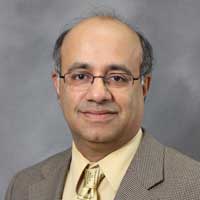
Karthik Ramani, Ph.D.
Donald W. Feddersen Distinguished Professor of Mechanical Engineering
Purdue University
Biography: Karthik Ramani is the Donald W. Feddersen Distinguished Professor of School of Mechanical Engineering at Purdue University, Professor of Electrical and Computer Engineering and by courtesy in the College of Education. His research interests are in designing extended reality and collaborative intelligence platforms, using extended reality with AI for scaling workforce skills, manufacturing productivity, human-machine-robot interactions, spatial interfaces, and visual large language based interfaces. In summer 2016 he was a Visiting Professor at Oxford University Institute of Mathematical Sciences. In 2008, he was a Visiting Professor at Stanford University (computer sciences) and a research fellow at PARC (formerly Xerox PARC). He has served on the editorial board of Elsevier Journal of Computer-Aided Design (CAD) and the ASME Journal of Mechanical Design (JMD). He also served on the engineering advisory board for SBIR/STTR for the NSF. He was the co-founder of the world’s first commercial shape-based parts search engine (VizSeek) and co-founded ZeroUI, which produced a robotics platform product (Ziro) that placed as Best of Consumer Electronics Show finalist (CES 2016). He is also a partner in Exposition Ventures. He has published recently in ACM [CHI & UIST], IEEE [CVPR, ECCV, ICCV], NIPS, ICLR, ICRA, and CAD. He earned his B.Tech from the Indian Institute of Technology, Madras, in 1985, an MS from Ohio State University, in 1987, and a Ph.D. from Stanford University in 1991, all in Mechanical Engineering.
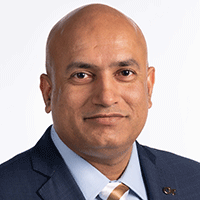
Devesh Ranjan, Ph.D
Eugene C. Gwaltney, Jr. School Chair and Professor,
George W. Woodruff School of Mechanical Engineering,
Georgia Institute of Technology
Biography: Devesh Ranjan is the Eugene C. Gwaltney, Jr. School Chair in the George W. Woodruff School of Mechanical Engineering at Georgia Tech. He earned his PhD in Mechanical Engineering from the University of Wisconsin-Madison. Ranjan’s research focuses on the interdisciplinary area of power conversion and complex fluid flows involving shock and hydrodynamic instabilities. He also studies the turbulent mixing of materials in extreme conditions, such as supersonic and hypersonic flows. Ranjan serves as a co-director of the Department of Defense-funded University Consortium for Applied Hypersonics (UCAH). Ranjan has held a number of leadership positions at Georgia Tech. He served as interim vice president for Interdisciplinary Research and was also co-chair of the hypersonics task force. Ranjan also served as Associate Chair for Research and Ring Family Chair in the Woodruff School and chaired the Fluid Mechanics Research Area Group. Ranjan is an ASME fellow and has received numerous awards for his contributions. He was Georgia Tech's first recipient of the DOE's Early Career Award, and received the NSF's CAREER award, the U.S. Air Force Office of Scientific Research Young Investigator award, and the 2023 ASME Gustus L. Larson Memorial Award.
He currently serves as the director of the Shock Tube and Advanced Mixing Laboratory.
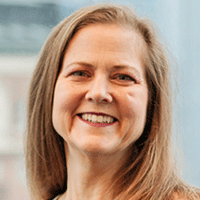
Mary Lynn Realff, Ph.D.
Associate Chair for Undergraduate Programs
School of Materials Science and Engineering
Georgia Institute of Technology
Biography: Mary Lynn Realff is the Associate Chair for Undergraduate Programs in the School of Materials Science and Engineering at the Georgia Institute of Technology in Atlanta, Georgia and also Cox Faculty Fellow, Co-Director of the Center for Women, Science, and Technology, and a Fellow of the Center for Deliberate Innovation. Dr. Realff (GT BS Textile Engineering 1987) has served on the faculty at Georgia Tech since 1992 and is currently leading the Effective Team Dynamics Initiative. Dr. Realff is a transformational leader with a passion for diversity, equity, and inclusion. She led efforts at Georgia Tech and in the American Society of Mechanical Engineers (ASME) to change policies and practices to increase diversity. She has been integral in setting organizational strategies across Georgia Tech, the National Science Foundation, and the Center for Puppetry Arts. She served as the Vice President of Leadership and Diversity in ASME where the resulting policies and training have influenced the diversity and inclusion strategies of a wide range of professional societies. She has the energy to initiate and the dedication to sustain innovative education programs at the graduate, undergraduate and K-12 levels. Dr. Realff is the founding director of the Effective Team Dynamics Initiative (ETD) which delivers on the vision that Georgia Tech will be a community where everyone's unique contributions are recognized. ETD cultivates a supportive, productive, and harmonious learning community grounded in strengths-based collaboration. Her operational leadership and strategic oversight have resulted in the initiative impacting 8000 undergraduate and graduate students and 2000 post docs, faculty, and staff in just the past five years. Dr. Realff has disseminated this program to other institutions. She directs an NSF sponsored grant in innovation in graduate education which draws on best practices in team work to develop leaders in engineering practice.
Dr. Realff's service has been recognized through the ASME Dedicated Service Award and the Georgia Tech Diversity Champion Award. In 2007, she was named Fellow of ASME.
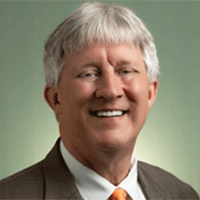
Joseph J. Rencis, Ph.D., P.E.
Interim Department Head of Mechanical Engineering
The University of Texas at Dallas
Biography: Dr. Rencis has a career spanning over thirty-eight years of experience in higher education and is a national leader in engineering education. He takes pride in being a first-generation college graduate with a humble background. He holds a B.S. in architectural and building construction engineering technology from Milwaukee School of Engineering and an M.S. and Ph.D. in civil engineering from Northwestern University and Case Western Reserve University. Dr. Rencis has served as a tenured professor of mechanical engineering at Worcester Polytechnic Institute. He was the department head of mechanical engineering at the University of Arkansas, and dean of engineering at Tennessee Tech University and Cal Poly Pomona. He has also served as interim dean of engineering at the University at Albany, SUNY, and the University of Texas Permian Basin. He serves as interim department head of mechanical engineering at the University of Texas at Dallas. Dr. Rencis has made a significant contribution to the field of mechanical engineering by serving as chair and vice-chair of the ASME mechanical engineering department heads committee and president of the ASEE. He is a fellow of ASME and ASEE, and his research work is in computational solid mechanics and engineering education. Dr. Rencis has won several awards, including the ASEE Hall of Fame, ASEE Mechanical Engineering Division Ralph Coats Roe Award, ASEE Isadore T. Davis Award for Excellence in Collaboration of Engineering Education and Industry, ASEE Mechanics Division Archie Higdon Distinguished Educator Award, and ASEE Northeastern Section Outstanding Teaching Award. Additionally, Dr. Rencis is a professional engineer in Massachusetts.
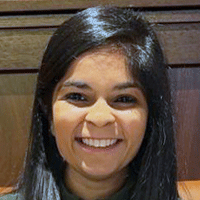
Pooja Thakkar Singh
Program Manager, Strategic Initiatives
ASME
Biography: Pooja Thakkar Singh is a mechanical engineering graduate of Temple University in Philadelphia. She obtained her Master's in Business Administration (M.B.A.) from Pennsylvania State University. She went on to join Johnson Matthey in Devon, Pennsylvania as a Process Control Engineer in 2014 and worked herself up to a Quality Control Supervisor in just six months. She was managing a staff of seven lab technicians at the age of 23. In 2016, she transitioned to Morgan Corporation in Morgantown, Pennsylvania as a Quality Engineer. Then in 2017, she joined the New Jersey Department of Transportation as a Mechanical Engineer Trainee. Within her five-year tenure there, she was promoted to Assistant Mechanical Engineer (2018), Principal Mechanical Engineer (2019) and Program Specialist 3 (2022). Pooja is certified in Sustainable Fleet Management as well as Six Sigma Lean Green, and Black Belts. She has served as a panelist for two Transportation Research Board projects and served as the Secretary of the Northeast Partnership in the Equipment Management Technical Services Program (EMTSP). Pooja is a Program Manager at the American Society of Mechanical Engineers (ASME) in the Strategic Initiatives team. She resides in Ewing, NJ with her husband and loves to read, travel, and bake in her spare time.
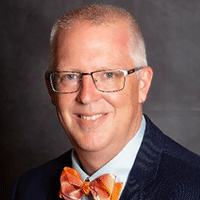
Joshua D. Summers, Ph.D.
Associate Dean for Undergraduate Studies
Professor of Mechanical Engineering
University of Texas at Dallas
Biography: Joshua D. Summers is Associate Dean for Undergraduate Studies and Professor of Mechanical Engineering at the University of Texas at Dallas. Dr. Summers earned his Ph.D. from ASU (design automation) and his MS (submarine design) and BS (fluidized bed design) from University of Missouri. He has worked at the Naval Research Laboratory (VR Lab and NCARAI). He was formerly a Professor at Clemson University (2002-2020). Dr. Summers’ research has been funded by the government, large industry, and small-medium sized enterprises. His areas of interest include collaborative design, knowledge management, and design enabler development with the overall objective of improving design through collaboration and computation.
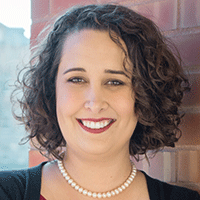
Kaitlin Tyler, Ph.D.
Academic Content Development Program Manager
Ansys
Biography: Kaitlin is an Academic Content Development Program Manager at Ansys. Her role focuses on supporting academics using Ansys software in the classroom through engaging educational resources and training. Her recent work has focused on introducing materials concepts into the classroom of any engineering discipline, the overlap between materials selection and simulation in design, and supporting pre-university STEM initiatives. She received her PhD in Materials Science and Engineering from the University of Illinois Urbana-Champaign and a B.S. in Materials Science and Engineering from Michigan State University. She attributes her career in the engineering education space to volunteering for a STEM high school camp during graduate school.
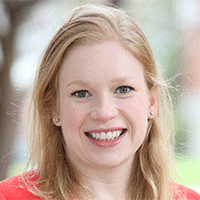
Sarah Wilson, Ph.D.
Assistant Professor, Chemical and Materials Engineering
University of Kentucky
Biography: Dr. Sarah Wilson is an Assistant Professor in Chemical and Materials Engineering at the University of Kentucky. She is the director of the Wilson Research Group, where she works to understand and improve mental health in engineering. In this way, she defines mental health as not just the absence of mental illness but a mental state in which engineers can effectively cope with stress, realize their potential, and contribute to society. She is particularly interested in developing and implementing interventions to improve mental health related help seeking in undergraduate engineering students. Sarah graduated with a B.S. in Chemical Engineering from Rowan University and a Ph.D. in Chemical Engineering from the University of Massachusetts. She began her academic career as teaching faculty in Chemical Engineering at the University of Kentucky. As an educator, Sarah works to integrate non-cognitive skills such as creativity, social and emotional intelligence, and communication into her courses. Her experience as a teaching faculty member led her to the development of her research in student mental health, resulting in her transition from teaching faculty to assistant professor with research in engineering education in 2021. She has also co-developed and implemented a workshop on supporting undergraduate student mental health, which has been offered to engineering faculty nationally.

Boni Yraguen, Ph.D.
Instructional Consultant, Center for Teaching Mechanical Engineering
Vanderbilt University
Biography: Dr. Boni Yraguen completed her PhD in Mechanical Engineering at the Georgia Institute of Technology with a specialization in the Thermal Fluid Sciences, specifically Diesel Combustion. Parallel to her technical work, her research delves into designing engineering assessments for higher-order critical thinking, integrating technical-reflection in the engineering classroom, fostering STEM faculty development, and graduate education. Boni's work studying issues in graduate education began organically, after observing and experiencing a number of systematic barriers to obtaining support and resolution for a broad range of common graduate student stressors. She and her team sought to innovate a solution to common issues and developed the Conflict Resolution Navigator Tool. The results and impact from this work inspired Boni to pursue a research career focused on increasing equity, well-being, and persistence for STEM graduate students. After spending some time getting deeply integrated into the education research community, she hopes to pursue a tenure track role at an R1 institution committed to leading transformative change in graduate education for STEM students.